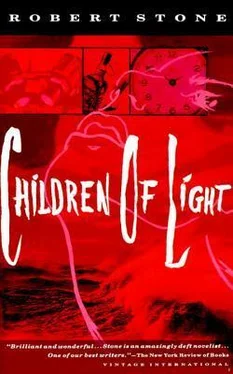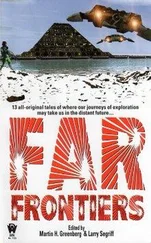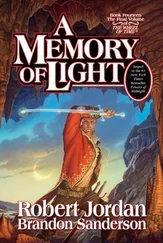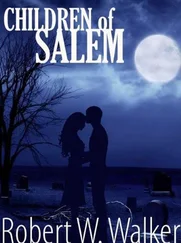Robert Stone - Children of Light
Здесь есть возможность читать онлайн «Robert Stone - Children of Light» весь текст электронной книги совершенно бесплатно (целиком полную версию без сокращений). В некоторых случаях можно слушать аудио, скачать через торрент в формате fb2 и присутствует краткое содержание. Год выпуска: 1992, Издательство: Vintage, Жанр: Современная проза, на английском языке. Описание произведения, (предисловие) а так же отзывы посетителей доступны на портале библиотеки ЛибКат.
- Название:Children of Light
- Автор:
- Издательство:Vintage
- Жанр:
- Год:1992
- ISBN:нет данных
- Рейтинг книги:4 / 5. Голосов: 1
-
Избранное:Добавить в избранное
- Отзывы:
-
Ваша оценка:
- 80
- 1
- 2
- 3
- 4
- 5
Children of Light: краткое содержание, описание и аннотация
Предлагаем к чтению аннотацию, описание, краткое содержание или предисловие (зависит от того, что написал сам автор книги «Children of Light»). Если вы не нашли необходимую информацию о книге — напишите в комментариях, мы постараемся отыскать её.
Children of Light — читать онлайн бесплатно полную книгу (весь текст) целиком
Ниже представлен текст книги, разбитый по страницам. Система сохранения места последней прочитанной страницы, позволяет с удобством читать онлайн бесплатно книгу «Children of Light», без необходимости каждый раз заново искать на чём Вы остановились. Поставьте закладку, и сможете в любой момент перейти на страницу, на которой закончили чтение.
Интервал:
Закладка:
There were some questions to take up, some questions for the writer here. Did Walker really believe in exaltation beyond despair? Did that mean she had to? Would she be able to play it? For that she had an answer which was: absolutely, you betcha. We play them whether they’re there or not. And once we’ve played them they’re there and there they stay, just like Marcel Herrand’s Larcenaire, Henry Fonda’s Wyatt Earp, Jimmy Dean’s Jimmy Dean. Exaltation beyond despair, she thought. Christ, I can stand that out in the middle of the floor and tap-dance on the son of a bitch.
It was wearying to have to think about despair, to have to think about Edna and Walker and what was there and what not. About the last especially, she wasn’t sure she had the right to an opinion. Who knew what was there and what wasn’t? The liquor made her head ache. Who could say what exaltations there were?
What if walking by the water one day you broke through it? You’re walking into the water like our Edna and bam! Life more abundant.
That’s a trick, she thought suddenly. That’s a mean trick, because Walker was right about the lure of life more abundant. To go for it was dying. That kind of abundance, going for that was dying.
That was what he had meant. That, and Antony and Cleopatra , Act V, scene 2.
Very clever, Walker, she thought, but a pretty tough one to lay on your old pal. He had rewritten the ending over the past year, not the action but the emotional tone in his descriptions. It occurred to her that he might think he was about to die. Or be wishing himself dead, or her.
There was, she decided, no point in getting upset about it. It was only the script, and the script an adaptation from what was only a book. Beyond despair to a kind of exaltation as far as she knew was nothing more than a theatrical convention, just as walking into the drink at sunset was only movies. Her trouble with Walker was that, down deep, she thought he knew everything. The past, the present and future, all the answers. But he was just a writer, as she was what she was.
She drank a little more; a confusion of emotions assailed her, her head ached. She took a couple of aspirin, turned out the lights and slumped into a chair with her legs up on the lounger, the glass in her hand.
What’s going on, Walker? she thought. What’s happening here? Who are we and what are we playing at? Where does one thing leave off and the other stuff commence?
“I’m real,” she said aloud. Having so declared, she had to have a drink and think about it. I know that I am. I know what’s me and what’s not me. That’s all I know. She finished what was in her plastic glass and threw it gently onto the makeup counter.
It was not quite dark inside the trailer. The late-afternoon sunlight hurled itself against every hatch, every weld and seam in the big metal compartment. The Long Friends came out to gossip and brush her with their wings. They were always there when it was dark and reality in question. Their lavender sachet breath was cloying, narcotic.
“Hush now,” she told them.
They prattled on about secrets. Much of their talk was about things that must never be known, ruinous scandals, undetected crimes.
The incessant undercurrent of noise drove her to rise and turn on the overhead lamps. Only one of the Long Friends remained with the light, curled up in the darkest corner, smiling vacantly.
The ones born aren’t enough for you, the Friend said. The ones unborn, they’re too many.
“Don’t unborn me,” Lee said. “Really,” she said, “really, you have a nerve giving that abortion crap to me. I gave life to four and you took one back.” She turned to the corpse-like creature in the corner. “Want me to lie awake nights? No, thanks.” She cursed it in Creole French until it raised chalk-white splayed fingers to stop its ears. Watching it do so, she raised her own hands to the side of her head.
“You’re a sickness,” she said without looking at it, “that I breathed in from a graveyard.”
She had an inward vision of a hot September day that sometimes came to her in dreams. She was small, always a child in her dreams, and walking a sandy road down home. On one side of the road, government pines were planted in rows and beyond them tupelos grew beside the motionless river. She crossed herself walking beside a cemetery wall; the oven graves on the far side were invisible to her. She held her breath as long as she could but she could hold it only so long. It was before the hurricane and the high water, just before they’d moved to town, the same summer she remembered her father huge and drunk in the doorway, looking past her for somebody real. Sometimes it pleased her to imagine she had breathed in the Long Friends that day, although it was years before she began to hear and finally to see them.
She turned and looked at the one in the corner. The rough cloth in which it had wrapped itself, the colorless god’s-eye pattern of its wing seemed as vividly present as anything in the trailer.
“Do you love me?” she asked. She began to laugh and cut herself off. Her prescription pills were in the pill case in her carry bag. She took them out, poured them into her hand and mentally counted them. There were enough to put her out forever. That was what she had wanted to see. All right, she thought. There were enough — there would be enough tomorrow. Next year and the year after that. It was always there. She put the pills back into their plastic capsule.
Resting her brow on her hand, she tried to think about the scene she was about to play. Cleopatra. Immortal longings and exaltation beyond despair. She clenched her teeth and shook her head violently, wrapping the beach robe closer about her shoulders. Then she began to sing.
Her song was a wordless prayerful hum. Years before, she had sung in convincing imitation of the saintly folk sopranos of her youth; she had no training but she liked to sing. As she sang, she relaxed, closed her eyes and let her arms go limp beside her. The song located her to that September day when walking beside the burial ovens she had breathed in some evil fateful thing.
Save me, she sang. That was what the song was about. Somebody, save me.
She leaned her head back, clasped her hands and let her voice rise in a strong tremolo. The song summoned up such a wave of sadness, of recollected hopes, old loves and losses that she thought she would die.
Where’s my exaltation beyond despair? she thought. There’s nothing here but this dreaming child, all unhappy.
She let her song rise again and spread out her arms. In Louisiana the old black people called that kind of singing a bajo or a banjo song, a homesick blues for where you’ve never been, which for them was Africa but for her was God only knows.
Be there, Lu Anne sang. Be there, Sweet Jesus. Be there.
She leaned back in the lounger, exhausted. When she turned to the mirror she saw her own secret eyes. No other person except her children and the Long Friends had ever seen them. She had used them for Rosalind, but so disguised that no one looking, however closely, could know what it was they were seeing in her face. None of her children had secret eyes.
She got to her feet, transfixed by what she saw in the mirror. The shock made her see stars as though she had been struck in the face. She watched the secret-eyed image in the glass open its mouth; she tried to look away.
Clusters of hallucination lilacs sprang up everywhere, making a second frame for the mirror, sprouting from between her legs. In her terror she called on God.
Suddenly the place was filled with ugly light, sunlight at once dingy and harsh. Trash light. Josette was standing in the open doorway, wide-eyed and pale. She took a step backward, her lip was trembling. It was the first time Lu Anne had ever seen the Frenchwoman show anything other than unsmiling composure.
Читать дальшеИнтервал:
Закладка:
Похожие книги на «Children of Light»
Представляем Вашему вниманию похожие книги на «Children of Light» списком для выбора. Мы отобрали схожую по названию и смыслу литературу в надежде предоставить читателям больше вариантов отыскать новые, интересные, ещё непрочитанные произведения.
Обсуждение, отзывы о книге «Children of Light» и просто собственные мнения читателей. Оставьте ваши комментарии, напишите, что Вы думаете о произведении, его смысле или главных героях. Укажите что конкретно понравилось, а что нет, и почему Вы так считаете.












